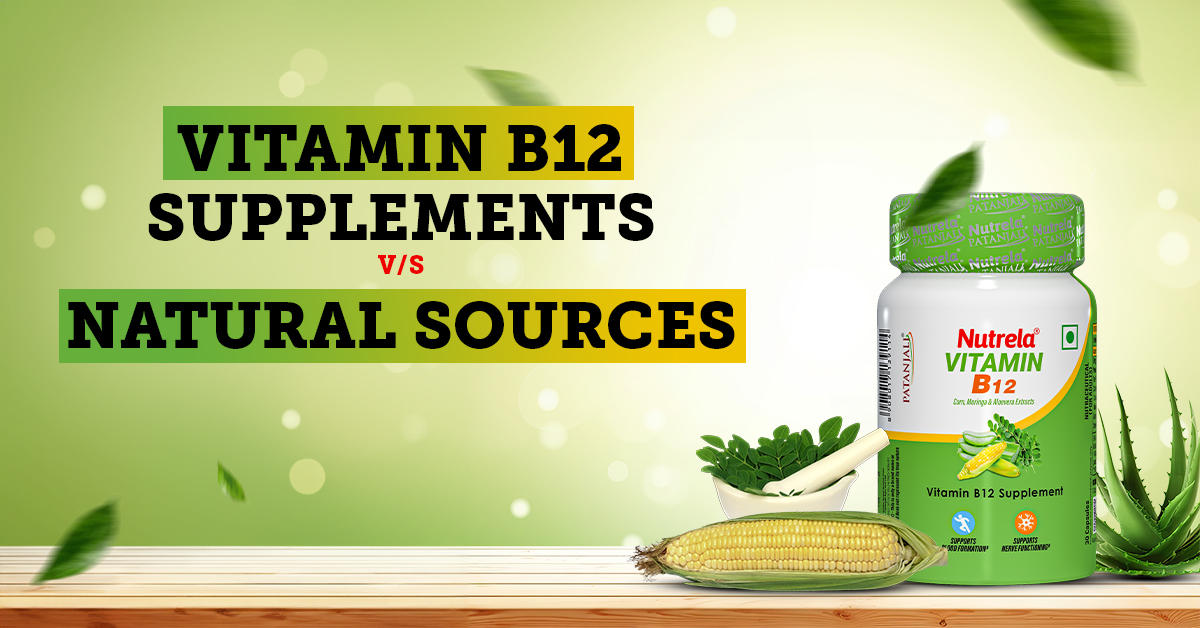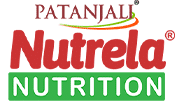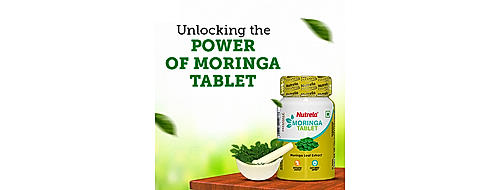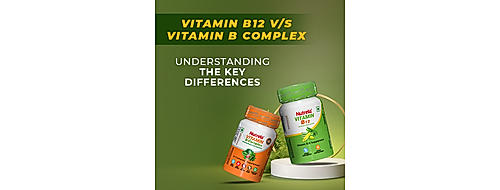
Vitamin B12 Supplements vs. Natural Sources: Which is Best for You?
Vitamin B12 is an essential nutrient which paly a crucial role in maintaining health within the brain, producing red blood cells, and DNA synthesis. A nutrient deficiency causes conditions ranging from fatigue to anemia and neurological disorders. Therefore, adequate nutrients are paramount, either through food or supplements. There are numerous options, but can you obtain vitamin B12 supplements naturally or more by supplementation? How would you distinguish between natural or supplemental sources? Do that with the aid of your analysis in the following essay sections below:
Let’s Know more about Vitamin B12 Supplements vs. Natural Sources:
About Vitamin B12
It is a unique vitamin from healthy and nutrient-rich diets. It is an essential vitamin that keeps healthy nerve cells and hence plays a vital role in an individual's energy supply level. Unlike most vitamins, the body has it in the liver and can store it for up to three years. Though many adults probably get sufficient amounts of this vitamin, plant-based dietarians, older individuals, and, especially in certain diseases/conditions- people have deficient levels.
Nutritional Supplements may be necessary, but naturally occurring vitamin B12 tablets should be of preference in one's dietary choices for them. To buy Vitamin B12 tablets, you can visit Patanjali Nutrela Nutrition online stores.
Natural Sources of Vitamin B12
Vitamin B12 occurs naturally in foods of animal origin. So, it is not that easy for vegetarians and vegans to get enough from diet alone. Some excellent natural sources of B12 are:
Meat: Beef, pork, and lamb are rich in vitamin B12.
Fish and Shellfish: Salmon, tuna, and clams are rich.
Dairy Products: Milk, cheese, and yoghurt are moderate sources.
Eggs: These are also a good source, although at lower levels than meat and fish.
Advantages of Dietary Source:
Better Absorption: Vitamin B12 from food is absorbed much better by the body.
Other Nutrients: Foods rich in B12 also contain other nutrients important to one's health, like protein, iron, and omega-3 fatty acids, which affect general well-being.
Long-term Health Sustainability: Intake of a varied diet rich in whole foods can boost overall health and supply other critical nutrients beyond B12.
Disadvantages in Natural Sources
Limited Diet: Vegans and vegetarians often have difficulty obtaining adequate B12 from b12 vs natural sources because it is mainly from animal products.
Age-related Absorption Disorders: As people age, less B12 is absorbed due to an impaired stomach that may not produce sufficient acid.
Vitamins B12 Supplements:
Vitamin B12 supplements are available in vitamin b12 tablets, capsule, and sublingual drop forms. Cyanocobalamin and methylcobalamin are two of the most common types of B12 used in vitamin b12 vs natural supplements. Supplements are also prescribed for absorption disorders, dietary restrictions, and certain health conditions. Visit Patanjali Nutrela Nutrition online stores, and buy B12 supplements at affordable prices.
Advantages of B12 Supplements:
Convenience: It is easy to take vitamin b12 vs natural supplements and can raise the levels fast in deficient persons.
Accessibility: Supplements give people an alternate way to consume B12 since it is either restricted or challenging to obtain through diets.
Larger Doses for Deficiency: If you have a deficiency, a vitamin b12 vs natural supplement can deliver far higher doses than are accessible in foods, which helps restore the levels of B12 faster.
Disadvantages of B12 Supplements
Over-Dependence on Supplements: Those who rely solely on vitamin b12 vs natural supplements tend to need to remember to take their diet in the proper proportion.
Side Effects Possible: Although this rarely occurs, some may face gastrointestinal problems or mild allergic reactions when taken in higher amounts.
1. For Omnivores: If you always consume animal products, chances are that you do not need B12 supplements. A diversified diet comprising a variety of B12-rich foods such as meat, fish, and dairy should meet all your needs.
2. Vegetarians and Vegans: Supplementation is often needed because plant-based diets have inadequate B12 content. Plant-based diets must be consulted with the physician regarding the current B12 status and, thus, the proper dosing.
3. Older Adults: Absorption of B12 from food diminishes with age and usually requires supplementation at this point in life. Sublingual tablets and B12 injections are commonly administered for maximum absorption.
4. For Individuals Who Have Impaired Absorption: Certain health conditions, such as Crohn's disease, celiac disease, or surgeries of a specific type, might prevent the absorption of B12 from the food consumed. In such situations, supplements or injections are usually necessary.
Conclusion
The benefits of each b12 vs natural sources, and supplementary, must be balanced. Food supplements rich in B12s can also improve overall general well-being, supplemented by taking vitamins through supplements or pills. For example, Patanjali Nutrela B12 supplements create a definite solution for consumers who seek an easily bioavailable source of B12. Irrespective of their choice, frequent health and medical check-ups with physicians will ascertain whether one enjoys optimal B12 levels or any benefits from them.













By Nutrela Nutrition
05 Dec 2024
0